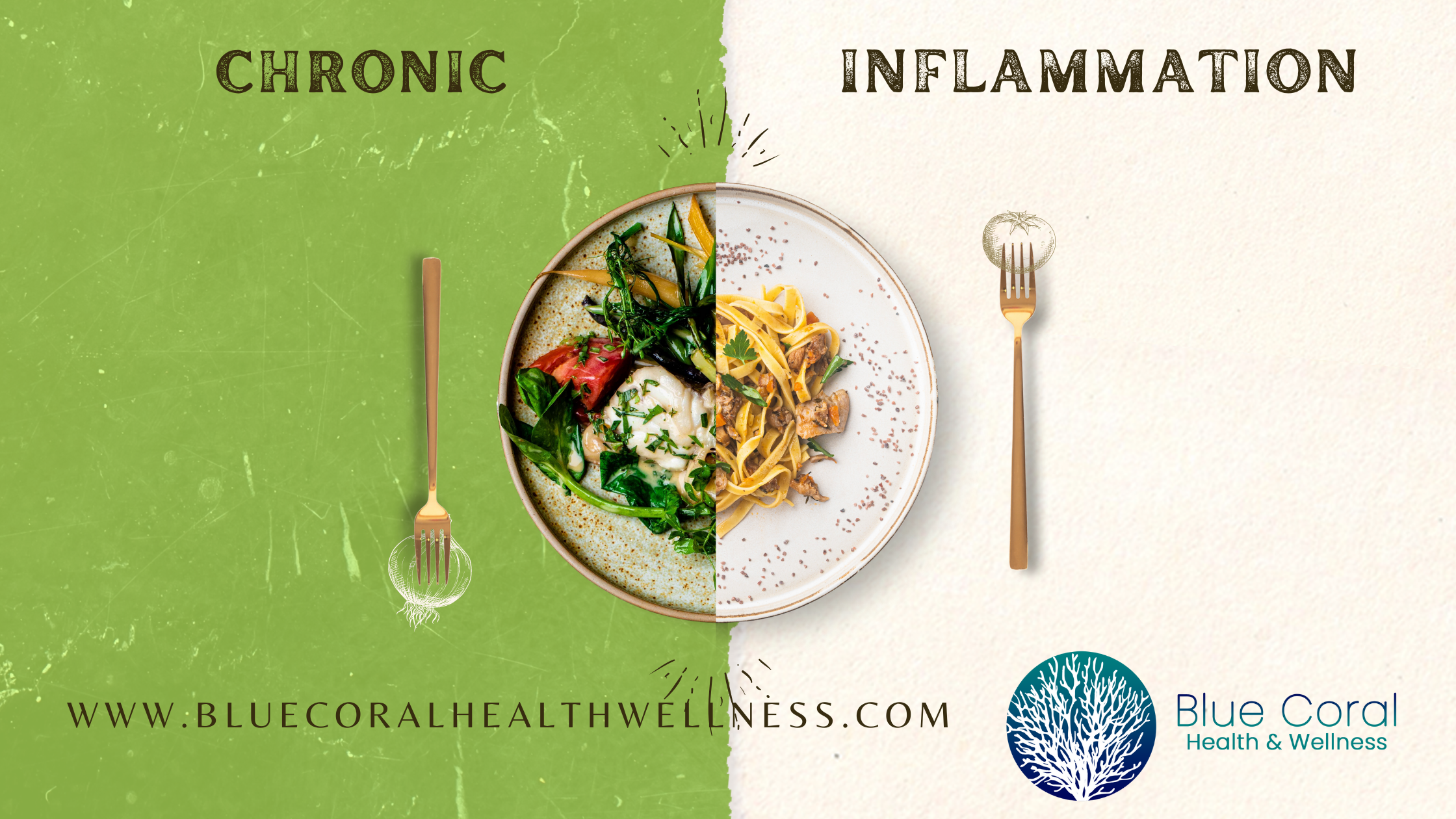
Chronic Inflammation
Chronic inflammation plays a role in most disease processes including Diabetes, Colitis, Cancer, Arthritis, Alzheimer’s, Heart disease, Psoriasis, Eczema and infection. One of the biggest contributors of chronic inflammation is the SAD diet (Standard American Diet), which consists of regular consumption of fast-food & processed food. As a result of this diet, obesity is more likely to occur, compounding symptoms, disease and risk factors for the stage of inflammation.
Traditionally, Conventional Medicine focuses on treating the symptom or disease, not the person. A pill is prescribed to control or alleviate symptoms. Conversely, Functional Medicine looks at the whole person, delving deep into past and present medical history, family history, past use of antibiotics, exercise, self-care, sleep, stress, and relationships. All of this information helps provide pieces of an intricate puzzle that ultimately uncover the root cause of inflammation.
Once the source of the inflammation is identified, treatment can begin. The most important tool in the fight against inflammation is diet. The goal is to reduce the amount of sugar and carbohydrates consumed on a daily basis, while increasing fruits, vegetables and healthy fats such as avocados, walnuts, olive oil, seeds and cold water fish. Fruits and vegetables contain antioxidants, which lower inflammation, such as kiwi, red bell peppers and spinach.
Phytonutrients are important in the battle against inflammation. A good variety of colorful produce provide these important nutrients. Vitamin C and fiber are also essential components. Fiber helps lower glucose, regulate the immune system and provides resistance against pathogenic bacteria, protecting the good bacteria in the gut.
Additionally, elimination diets are used to help decrease inflammation. The primary food allergens are dairy and gluten, however, other items may be eliminated, such as sugar, alcohol, beef, shellfish, soy, eggs and peanuts. The recommendation for an elimination diet is 4-6 weeks, with a slow reintroduction process to identify which food items cause symptoms.
Finally, time restricted eating plays a beneficial role in reducing inflammation. This allows your body time to rest & recover. Time restricted eating reduces blood pressure, blood sugar, improves brain function, decreases triglycerides and total cholesterol and reduces inflammation and free radicals. It may also increase energy and reduce brain fog.
To conclude, food is key to improving health. Changing what and when we eat, can reduce inflammation and symptoms and improve quality of life. Knowing where to begin can be a little overwhelming. What to buy, what recipes to make, how much to eat from each food group and what foods to eliminate. There is a lot to consider! That’s why having a partner helps clarify and simplify the process.
I offer nutritional counseling to help identify the best plan for you as an individual. Activity, stress and lifestyle are all factored in, to make the plan personalized, measurable, achievable and time specific. My goal is to set you up for success. Remember, food is medicine and information. Personalized nutrition helps identify food items that work for your body and those that don’t. Together, we can start new habits, build a strong partnership and start the journey toward living your best life.

No Comments